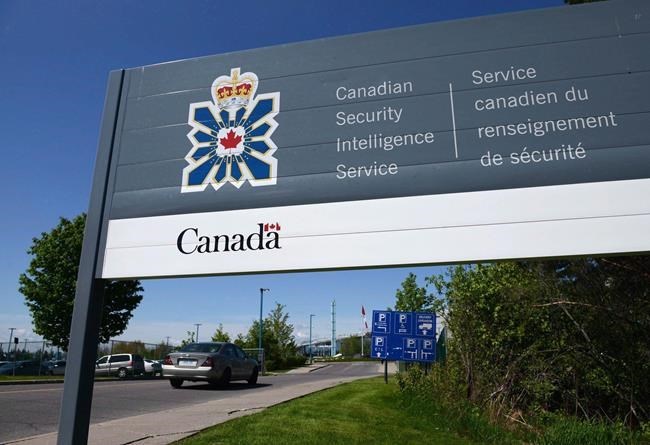OTTAWA — For the first time, a federal judge has expressly granted Canada's spy agency warrants to operate abroad even if it means breaking another country's laws.
Federal Court Justice Simon Noel authorized warrants for the Canadian Security Intelligence Service five months ago, but public reasons in the top-secret matter were issued only this week.
The extraterritorial warrant powers allow CSIS to carry out specific investigations in other countries, either directly or with the assistance of foreign partners, concerning threats to the security of Canada.
The court's reasons mention no details about the nature of the particular threats being investigated, the techniques authorized or the region of the world where the probes would take place.
CSIS has always been able to probe security threats in Canada and abroad, but for years there was a lack of clarity on the extent of those powers overseas.
Legislative changes that took effect six years ago gave judges the authority to issue warrants permitting CSIS operations abroad, even when they might run afoul of another country's laws, but this is the first public indication of the powers' use.
Noel said CSIS may execute these powers outside Canada with the assistance of the Communications Security Establishment — the federal cyberspy service — and with foreign agencies acting under their own legal frameworks.
The application was supported by an affidavit sworn by a senior CSIS employee, Noel noted.
Given that it was the first CSIS application seeking these full extraterritorial warrant powers, Noel appointed Gordon Cameron, an experienced and security-cleared lawyer, as amicus curiae to assist the court.
During a full-day, closed-door hearing, the CSIS employee answered questions from Noel, counsel for the attorney general and Cameron.
When a warrant is issued, a judge's reasons are not automatically made public, except where they raise matters of an exceptional nature, Noel said.
In this case, the court believes the reasons "will be useful to the Canadian public, CSIS and the Attorney General of Canada in promoting the open court principle to ensure that the public’s confidence in a judicial process that must at times operate contrary to this principle," he added.
In his original reasons, dated Feb. 17, Noel said the CSIS employee who testified said that, in the context of the planned operations, the spy service would not engage in activities that would be illegal in a foreign country.
In subsequent written and oral evidence, the employee said there might, in fact, be situations in which CSIS might need to carry out such activities abroad.
In supplementary reasons, dated June 10, Noel said he was satisfied that "in this case factual circumstances exist that might necessitate the Service using the powers without regard to the law of a foreign state."
This report by The Canadian Press was first published July 15, 2021.
Jim Bronskill, The Canadian Press



